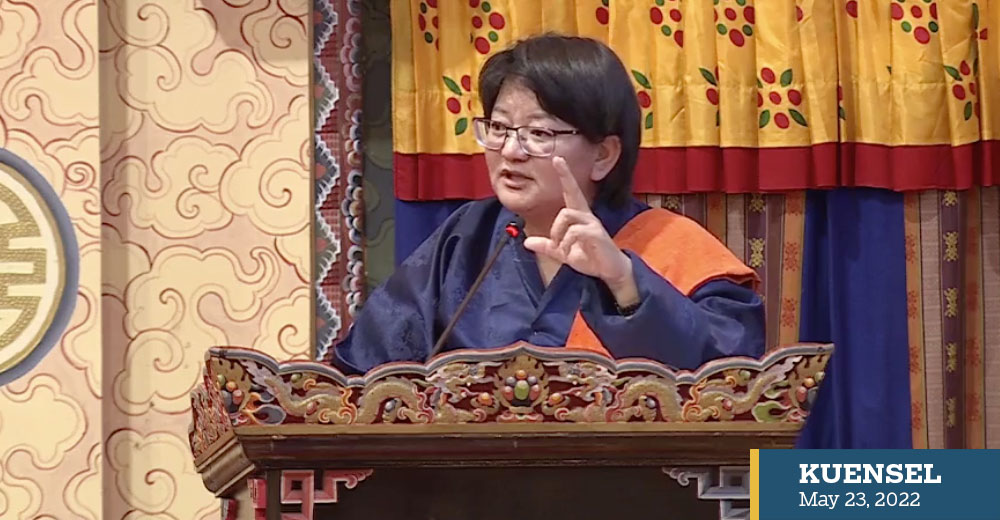Nima Wangdi
The Cabinet approved the issuance of bar licences to all the hotels after “numerous and detailed deliberation”, said Health Minister Dechen Wangmo. A task force, she said, was formed and stakeholders consulted.
Lyonpo submitted this during the question hour at the National Council (NC) yesterday.
MP Kesang Chuki Dorjee said that Bhutan is one of the countries with the highest per capita alcohol consumption.
NC raised concerns about making the alcohol easily available and recommendations were submitted to the government.
Lyonpo said that ministry also conducted a number of studies to establish whether the ban would help reduction in alcohol consumption.
Lyonpo said that the alcohol liver disease problem is on the rise and the ministry is concerned about it. “There is no dedicated organisation to take care of the alcohol addicts; a number of relevant organisations share responsibilities.”
“We will not be empowering citizens by imposing the ban on alcohol. We should now focus more on treatment and services for alcohol dependents, which we don’t have currently,” Lyonpo said.
She said that with the recent change in the alcohol policy, the number of bars but there is no evidence to prove that more bars have contributed to increased alcohol consumption.
According to Lyonpo, the issuance of bar licence was banned from 2015 until 2020. In the meanwhile, even grocery shops started selling alcohol and the volume of local-brewed ara remained the same.
Alcohol control strategy 2015-2020 was not implemented as it was not comprehensive enough.
Lyonpo said the ministry now has a big opportunity to enhance proper addiction services. “This time it is alcohol; tobacco could be the next. We will deal with the same model. It is very important that we have service provision for the consumers.
“[Alcoholism] is not a disease that can be treated immediately with a medicine but it is related to mental health and requires repeated counselling.”


